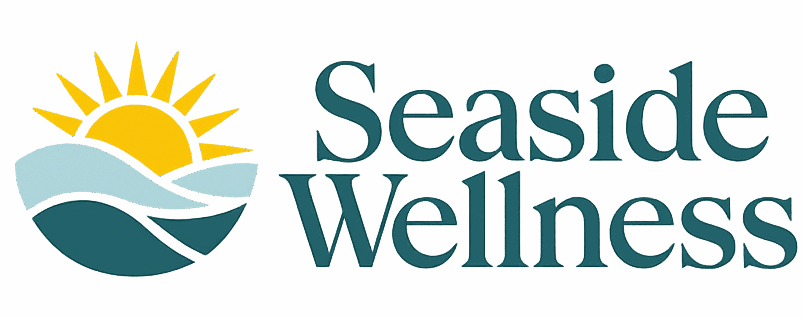Opiate addiction treatment in west palm beach, FL
Opiate addiction can take control of every part of a person’s life, affecting health, relationships, and mental well-being. At Seaside Wellness, our evidence-based treatment programs provide a safe and supportive environment to begin recovery. Through medical detox, therapy, and long-term support, our team helps clients heal from dependence and rebuild a healthy, purposeful life.
ind compassionate, personalized care for opiate addiction at Seaside Wellness in West Palm Beach. Our team of professionals guides you safely through detox and recovery toward lasting healing.


Understanding Alcohol Use Disorder and Its Impact
What is opiate addiction?
Opiates are a class of drugs derived from the opium poppy plant or made synthetically to mimic its effects. Common opiates include heroin, morphine, codeine, and many prescription painkillers such as hydrocodone, oxycodone, and fentanyl. These substances act on the brain’s opioid receptors to reduce pain and create feelings of euphoria and relaxation.
While opiates can be medically effective, their ability to trigger intense pleasure also makes them highly addictive. Over time, the brain adapts to their presence, requiring higher doses to feel the same relief, a process known as tolerance. As dependence develops, stopping use can cause painful withdrawal symptoms, reinforcing the cycle of addiction.
According to the National Institute on Drug Abuse (NIDA), repeated use of opioids alters brain chemistry, impairing judgment and reinforcing compulsive drug-seeking behavior, even when the person wants to quit.
At Seaside Wellness in West Palm Beach, we understand that opiate addiction is not a moral failing but a chronic, treatable medical condition. Through compassionate care and evidence-based treatment, we help clients safely manage withdrawal, address underlying causes, and develop lasting tools for recovery.
Signs and Symptoms of Opiate Addiction
Recognizing the signs of opiate addiction early can help you or a loved one get treatment before serious harm occurs. Opiate use affects the body and emotional health, often in ways that become more visible as dependence deepens.
Physical symptoms
- Pinpoint pupils
- Slowed breathing or shallow respiration
- Drowsiness or “nodding off” unexpectedly
- Itching or flushed skin
- Track marks or bruising from injection use
Behavioral symptoms
- Taking higher doses than prescribed or running out early
- Visiting multiple doctors to obtain prescriptions
- Withdrawing from family and social activities
- Neglecting work, school, or personal hygiene
- Hiding or lying about drug use
Psychological symptoms
- Intense cravings and loss of control over use
- Anxiety, depression, or frequent mood swings
- Memory or concentration problems
- Emotional detachment or apathy
If these symptoms sound familiar, professional treatment can make recovery possible. Studies show that about two-thirds of patients treated for prescription opioid addiction were in remission roughly four years following treatment. Get the help you need today.
Short- and Long-Term Effects of Opiate Abuse
While opiates are often prescribed for pain relief, misuse can lead to devastating short- and long-term consequences. The effects of opiate addiction extend far beyond physical health, impacting mental well-being, relationships, and quality of life.
Short-term effects
- Euphoria followed by drowsiness or confusion
- Slowed breathing and heart rate
- Nausea, vomiting, and constipation
- Constricted pupils and impaired coordination
- Itching or flushed, warm skin
Long-term effects
- Increased risk of overdose and respiratory failure
- Chronic constipation and digestive problems
- Hormonal imbalance and sexual dysfunction
- Brain changes affecting mood, memory, and decision-making
- Heightened risk of depression, anxiety, and other mental health issues
According to the National Institute on Drug Abuse (NIDA), prolonged opioid misuse can lead to lasting changes in the brain’s reward system, making it harder to feel pleasure and control cravings. Understanding these risks is the first step toward seeking help and restoring long-term health.
Get started today
Opiate withdrawal and why you need professional detox
When someone stops using opiates after prolonged use, the body must readjust to functioning without the drug. This process, known as opiate withdrawal, can be physically and emotionally intense. But with proper medical care, it can be managed safely and effectively.
What happens during opiate withdrawal?
Opiates attach to receptors in the brain that control pain, mood, and reward. When use stops, those receptors become overstimulated, causing a range of uncomfortable symptoms. Withdrawal typically begins within 6 to 12 hours after the last dose and can include:
- Muscle aches and joint pain
- Restlessness and insomnia
- Nausea, vomiting, and diarrhea
- Runny nose, sweating, and chills
- Anxiety, irritability, or depression
Opiates attach to receptors in the brain that control pain, mood, and reward. When use stops, those receptors become overstimulated, causing a range of uncomfortable symptoms. Withdrawal typically begins within 6 to 12 hours after the last dose and can include:
Early Stage (6–24 hours):
Mild flu-like symptoms begin, including anxiety, restlessness, sweating, and runny nose.
Peak Stage (1–3 days):
Symptoms intensify. Muscle pain, nausea, vomiting, and insomnia are common as the body purges the drug.
Stabilization Stage (4–7 days):
Physical symptoms gradually fade, though emotional distress and cravings may persist for weeks. Ongoing therapy and medical monitoring help ease this transition.
Getting help is essential to cope with withdrawal effects and the risk of relapse. Indeed, according to the Substance Abuse and Mental Health Services Administration (SAMHSA), medical supervision during detox significantly reduces the risk of relapse and complications during withdrawal.
This is why professional opiate detox matters
Detoxing from opiates without medical supervision can be dangerous and overwhelming. The intense withdrawal symptoms (both physical and emotional) often drive individuals back to using, creating a painful cycle of relapse. Professional detox provides the medical stability, emotional support, and safety needed to break that cycle.
24/7 Clinical Supervision
Our medical team provides 24/7 monitoring and medication-assisted care, ensuring dangerous symptoms are managed immediately.
Comfortable Environment
Seaside provides a peaceful, ocean-side setting designed to promote relaxation and emotional healing to help clients reduce stress, encourages a calm mindset during recovery.
Personalized Treatment
Each client receives an individualized detox plan tailored to their health history, substance use, and personal needs. MAT, evidence-based therapies, depending on your needs.
Seamless Transition to Rehab
Once detox is complete, clients smoothly transition into Seaside’s residential or outpatient programs, maintaining continuity of care that strengthens long-term recovery.
Treatment Options for Opiate Addiction
Recovering from opiate addiction requires more than detox alone. True healing happens through a continuum of care (can include residential, dual diagnosis and other), addressing not just physical dependence, but also the emotional, psychological, and social factors that fuel addiction.
At Seaside Wellness, clients have access to multiple levels of care, ensuring a seamless path toward long-term recovery.
Substance Abuse Residential Inpatient
Dual Diagnosis and Alcohol Addiction Treatment
Many individuals struggling with opiate addiction also face mental health disorders such as depression, anxiety, or PTSD. This combination, known as a dual diagnosis, is more common than most realize. According to the National Institute on Drug Abuse (NIDA), nearly 50% of individuals with substance use disorders also experience a co-occurring mental health condition.
Ignoring one condition while treating only the other often leads to relapse, which is why dual diagnosis treatment for opiate addiction is essential. At Seaside Wellness, our clinical team provides integrated care that addresses both mental and physical aspects of addiction at the same time.
By combining evidence-based therapy, medication management, and holistic mental health support, clients regain balance, stability, and the tools they need to achieve lasting recovery.



Expert alcohol addiction & Mental health rehab in Palm Beach County
Why Choose Seaside for Alcohol Addiction Treatment?
At Seaside Wellness of Palm Beach, we provide evidence-based treatment for opiate addiction, withdrawal, and co-occurring mental health conditions in a peaceful coastal setting. Our modern, private facility creates a safe and supportive environment where clients can focus on healing without distractions. With a dedicated clinical team and 24/7 medical supervision, we deliver highly personalized care rooted in compassion and clinical excellence.
Whether you need medical detox, residential treatment, or specialized dual diagnosis care, Seaside offers a complete continuum of recovery. Our goal is to help you or your loved one break free from the cycle of addiction and build a lasting foundation for recovery. From managing withdrawal to addressing the root causes of dependence, we guide clients every step of the way with structured treatment, holistic therapies, and long-term aftercare planning.
At Seaside Wellness, recovery isn’t just about stopping drug use, it’s about restoring balance, clarity, and purpose for a fulfilling life beyond addiction.
About us
Therapies
Most frequently asked questions
What are opiates and how do they cause addiction?
Opiates are drugs derived from the poppy plant, including morphine, codeine, and heroin, as well as synthetic opioids such as oxycodone and fentanyl. These substances attach to receptors in the brain, reducing pain but also triggering euphoria. Over time, the brain becomes dependent on the drug to feel normal, leading to addiction.
According to the CDC, more than 2.7 million Americans live with opioid use disorder (OUD).
What are the early signs of opiate addiction?
Common early signs include increased tolerance, doctor shopping, withdrawal symptoms between doses, social withdrawal, and secretive behavior. Recognizing these symptoms early allows for faster intervention and a higher chance of successful recovery.
How dangerous is opiate withdrawal without medical help?
Opiate withdrawal is rarely fatal but can be extremely painful and lead to dehydration, heart complications, or relapse. Medically supervised detox ensures comfort and safety through medication-assisted treatment (MAT) and 24/7 monitoring.
How long does opiate withdrawal last?
Withdrawal symptoms typically start 8–24 hours after the last dose, peak around 72 hours, and gradually lessen over 7–10 days. However, psychological cravings and fatigue may persist for weeks or months. Structured detox and therapy greatly reduce relapse risk.
What treatment options are available for opiate addiction?
Effective treatment combines medical detox, residential inpatient care, and behavioral therapies such as CBT and trauma-focused therapy. Many clients also benefit from MAT using suboxone or methadone to ease cravings and stabilize recovery.
What is medication-assisted treatment (MAT)?
MAT uses FDA-approved medications like buprenorphine, methadone, or naltrexone alongside counseling. According to the Substance Abuse and Mental Health Services Administration (SAMHSA), MAT can reduce opioid-related deaths by over 50% and double treatment retention rates.
Can you recover from opiate addiction long-term?
Yes. With professional support, therapy, and relapse prevention planning, recovery is absolutely achievable. Studies show that over 60% of individuals who complete evidence-based treatment remain abstinent one year later.
How does Seaside Wellness treat co-occurring mental health disorders?
Seaside integrates dual diagnosis treatment, addressing depression, anxiety, PTSD, or trauma alongside addiction. Treating both conditions simultaneously helps clients achieve stability and lowers relapse risk.
How long does opiate addiction treatment take at Seaside Wellness?
Length varies by individual needs. Detox lasts around a week, while residential or outpatient programs may range from 30 to 90 days or more. Seaside creates personalized timelines to support both physical and emotional recovery.
What kind of support is available after opiate rehab?
At Seaside Wellness, recovery continues long after treatment through our aftercare and alumni programs. Clients receive ongoing therapy, relapse-prevention planning, and access to a supportive community dedicated to long-term sobriety. Studies show that individuals who engage in structured aftercare are twice as likely to maintain recovery. Don’t face this alone.
Does insurance cover opiate addiction treatment?
Yes. Most major insurance providers, including Aetna, Cigna, Anthem, Blue Cross, and UnitedHealthcare cover addiction treatment services. Seaside Wellness offers free insurance verification to confirm coverage quickly and privately. Call (855) 416-5648 to speak with our admissions team.
How do I get help for myself or a loved one today?
If you or someone you love is struggling with opiate addiction, contact Seaside Wellness today. Our admissions team is available 24/7 to guide you through detox and recovery options.
Call (855) 416-5648 or visit seasidewellnesspb.com/admissions to start your path toward lasting recovery.
100% confidential, free assessment
TAKE THE FIRST STEP TOWARD SOBRIETY TODAY
If you or someone you love is struggling with opiate addiction, help is available right now. Our team at Seaside Wellness provides safe medical detox, personalized treatment, and long-term support to guide you toward lasting recovery. Call us 24/7 or fill out the form below to speak confidentially with an admissions specialist. Your journey to healing starts today.
